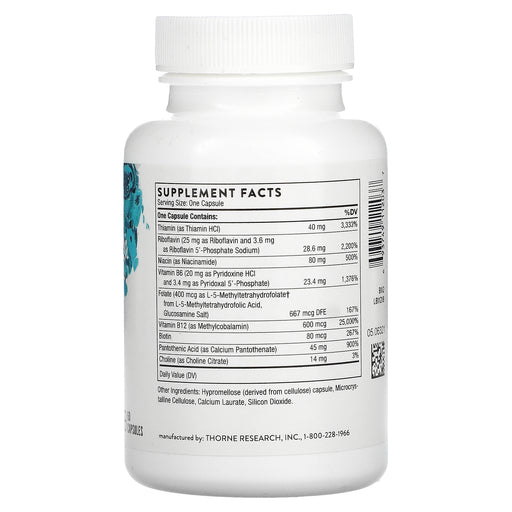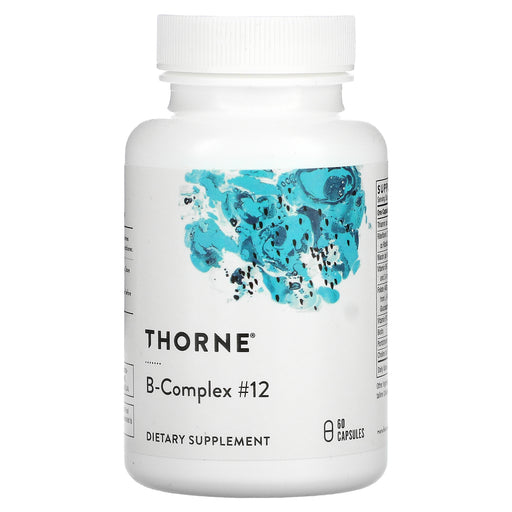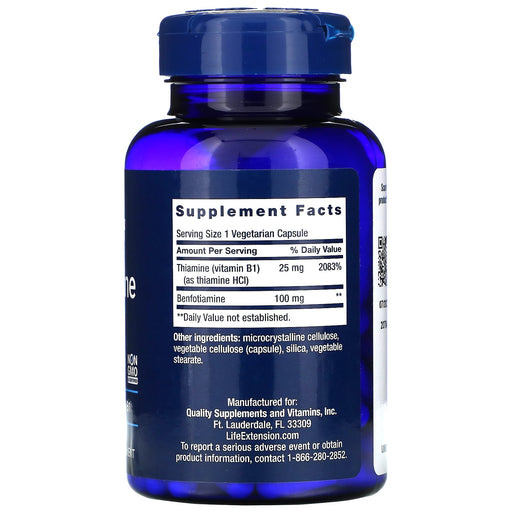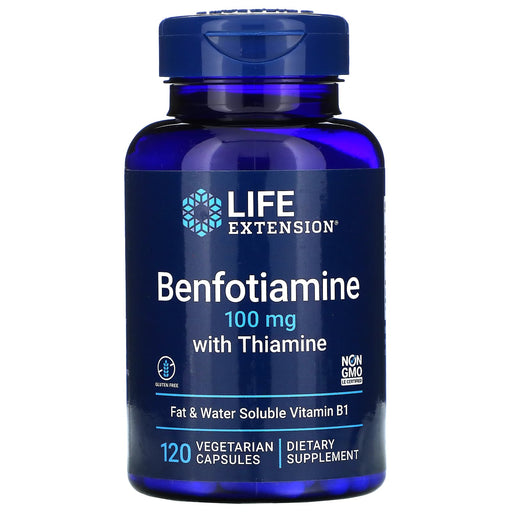
Unleash the Essential Benefits of Vitamin B1 for Optimal Health and Well-Being
Vitamin B1, also known as thiamine, is a crucial water-soluble nutrient that plays a vital role in various bodily functions, from energy production and nervous system support to heart health and brain function. At Health Orchard, we offer a premium selection of vitamin B1 supplements, carefully curated to provide you with the highest-quality options for supporting your overall health and well-being.
The Importance of Vitamin B1: Understanding Its Vital Roles in the Body
As a member of the B-complex family, vitamin B1 works synergistically with other B vitamins to support a wide range of physiological processes. Some of the key functions of vitamin B1 include:
- Energy Metabolism: Vitamin B1 is essential for the conversion of carbohydrates, fats, and proteins into usable energy (ATP) in the body. It acts as a coenzyme in the metabolic process, helping to fuel every cell and system for optimal function.
- Nervous System Health: Thiamine plays a crucial role in supporting healthy nervous system function, aiding in the production of neurotransmitters and maintaining the integrity of nerve cells. Adequate vitamin B1 intake is essential for proper brain function, mood regulation, and overall cognitive health.
- Cardiovascular Support: Vitamin B1 is involved in maintaining healthy heart function, supporting the proper contraction of heart muscles and the conduction of electrical impulses. It also helps regulate blood flow and maintain healthy blood vessels, promoting overall cardiovascular well-being.
- Glucose Metabolism: Thiamine is necessary for the proper metabolism of glucose, helping to regulate blood sugar levels and prevent the buildup of harmful byproducts in the body. This is particularly important for individuals with diabetes or those at risk for metabolic disorders.
- Antioxidant Protection: Vitamin B1 has been shown to possess antioxidant properties, helping to protect cells and tissues from oxidative stress and damage caused by free radicals. This may help support overall health and reduce the risk of various chronic diseases.
Vitamin B1 Deficiency: Signs, Symptoms, and Risk Factors
While severe vitamin B1 deficiency is relatively rare in developed countries, mild to moderate deficiencies can occur due to various factors, such as poor diet, alcohol abuse, or certain medical conditions. Some common signs and symptoms of vitamin B1 deficiency include:
- Fatigue and weakness
- Loss of appetite and weight loss
- Confusion and memory problems
- Muscle cramps and pain
- Numbness or tingling in the extremities
- Irritability and mood changes
Certain individuals may be at a higher risk for vitamin B1 deficiency, including:
- Those with alcohol use disorder, as alcohol interferes with thiamine absorption and metabolism
- Individuals following restrictive diets or those with poor nutritional intake
- People with malabsorption disorders, such as Crohn's disease or celiac disease
- Pregnant and breastfeeding women, who have increased thiamine requirements
- Older adults, who may have reduced absorption and utilization of nutrients
The Benefits of Vitamin B1 Supplementation
While it's always best to obtain nutrients from a balanced diet rich in whole foods, vitamin B1 supplements can be beneficial for individuals who may not be meeting their daily requirements or those with increased needs. Some of the potential benefits of vitamin B1 supplementation include:
- Supporting Energy Levels: By optimizing energy metabolism and ATP production, vitamin B1 supplements can help combat fatigue and support overall energy levels, making it easier to stay active and engaged in daily life.
- Promoting Brain Health: Adequate vitamin B1 intake is essential for maintaining healthy brain function, supporting cognitive performance, and reducing the risk of age-related cognitive decline. Thiamine supplements may be particularly beneficial for older adults or those with increased mental demands.
- Maintaining Cardiovascular Health: Vitamin B1 supplements can help support healthy heart function, blood flow, and vascular integrity, potentially reducing the risk of cardiovascular issues and promoting overall circulatory health.
- Supporting Glucose Metabolism: For individuals with diabetes or prediabetes, vitamin B1 supplements may help regulate blood sugar levels and prevent the buildup of harmful metabolic byproducts, supporting overall glucose metabolism and reducing the risk of complications.
- Enhancing Stress Resilience: Some studies suggest that vitamin B1 may help support the body's response to stress, promoting a sense of calm and reducing the impact of stress on mental and physical well-being.
Choosing the Best Vitamin B1 Supplement for Your Needs
When selecting a vitamin B1 supplement, it's essential to choose a high-quality product from a trusted source. At Health Orchard, we've done the hard work for you, curating a selection of the best vitamin B1 supplements on the market, each rigorously tested for purity, potency, and safety.
Here are some factors to consider when choosing a vitamin B1 supplement:
- Form: Vitamin B1 supplements are available in various forms, including tablets, capsules, and liquids. Consider your personal preferences and any specific absorption needs when selecting the best form for your lifestyle.
- Dosage: The recommended daily allowance (RDA) for vitamin B1 varies by age and gender, with adult men requiring 1.2 mg per day and adult women needing 1.1 mg per day. However, some individuals may benefit from higher doses, particularly those with increased needs or deficiencies. Consult with a healthcare professional to determine the optimal dosage for your individual needs.
- Bioavailability: Look for vitamin B1 supplements that use highly bioavailable forms of thiamine, such as thiamine mononitrate or thiamine hydrochloride, to ensure optimal absorption and utilization in the body.
- Brand Reputation: Choose vitamin B1 supplements from reputable brands with a history of producing high-quality, effective products. Look for brands that prioritize transparency, third-party testing, and adherence to Good Manufacturing Practices (GMP) to ensure the highest standards of quality and safety.
- Synergistic Nutrients: Some vitamin B1 supplements may include other B-complex vitamins or synergistic nutrients that work together to enhance the overall benefits. Consider a comprehensive B-complex supplement or a formula that includes supportive nutrients like magnesium or alpha-lipoic acid for a more well-rounded approach.
Maximizing the Benefits of Vitamin B1 Supplementation
To get the most out of your vitamin B1 supplement, consider the following tips:
- Take with Food: Vitamin B1 is best absorbed when taken with a meal, particularly one that contains some carbohydrates. Taking your supplement with food can also help reduce the risk of digestive discomfort.
- Pair with a Balanced Diet: While vitamin B1 supplements can help fill nutritional gaps, they should not replace a balanced diet rich in whole foods. Focus on consuming a variety of nutrient-dense foods, including whole grains, legumes, nuts, seeds, and fortified cereals, to ensure an adequate intake of thiamine and other essential nutrients.
- Consider Timing: Some individuals may find that taking vitamin B1 in the morning helps support energy levels throughout the day, while others may prefer taking it in the evening for a more restful sleep. Experiment with different timing to find what works best for your body and lifestyle.
- Be Consistent: The benefits of vitamin B1 supplementation are best achieved through consistent, daily use over time. Incorporate your supplement into your regular routine, taking it at the same time each day for optimal results.
- Store Properly: To maintain the potency and stability of your vitamin B1 supplement, store it in a cool, dry place, away from direct sunlight and moisture. Avoid exposing your supplements to extreme temperatures or humidity, which can degrade the active ingredients over time.
Experience the Life-Changing Benefits of Vitamin B1 Supplements from Health Orchard
At Health Orchard, we're dedicated to providing you with access to the highest-quality vitamin B1 supplements available, empowering you to take control of your health and well-being. Our carefully curated selection offers a range of potencies and formats, ensuring that you find the perfect supplement to meet your unique needs and preferences.
Whether you're looking for supplements to support energy levels, brain health, cardiovascular function, or overall wellness, our vitamin B1 supplements provide the essential nutrition you need to thrive. With our unwavering commitment to quality, transparency, and your success, you can trust Health Orchard to be your partner in optimal health.
Experience the transformative power of this vital nutrient and witness the difference that premium, science-backed vitamin B1 supplementation can make in your life. Shop our collection today and take the first step towards unleashing your body's full potential for health, energy, and vitality.
Frequently Asked Questions about Vitamin B1
1. What is vitamin B1 good for?
Vitamin B1, also known as thiamine, plays a crucial role in various bodily functions and offers several health benefits:
- Energy production: Helps convert carbohydrates into energy (ATP) for the body's cells
- Nervous system health: Supports proper nervous system functioning, aiding in nerve signal transmission and maintaining the health of the nerves
- Brain function: Plays a role in brain health, supporting cognitive function, memory, and concentration
- Digestive health: Aids in the digestion and metabolism of carbohydrates, fats, and proteins
- Cardiovascular health: Supports healthy heart function and may help lower the risk of heart disease
- Eye health: Contributes to the health of the eyes, particularly in preventing cataracts and glaucoma
- Immune function: Supports the immune system in fighting off infections and diseases
2. What is the function of vitamin B1?
Vitamin B1 (thiamine) has several essential functions in the body:
- Energy metabolism: As a coenzyme, thiamine helps convert nutrients (carbohydrates, fats, and proteins) into energy (ATP) for the body's cells
- Nervous system support: Thiamine is necessary for the proper functioning and maintenance of the nervous system, supporting nerve signal transmission and nerve health
- Neurotransmitter synthesis: Plays a role in the production of neurotransmitters, such as acetylcholine and gamma-aminobutyric acid (GABA), which are essential for brain function and communication between nerve cells
- Muscular function: Aids in muscle contraction and coordination, supporting overall muscle health
- Digestive function: Supports the digestion and metabolism of carbohydrates, fats, and proteins, ensuring proper nutrient absorption and utilization
- Cardiovascular health: Contributes to maintaining a healthy heart and blood vessels, potentially reducing the risk of heart disease
- Antioxidant properties: Acts as an antioxidant, helping protect cells from oxidative stress and damage caused by free radicals
3. What foods contain B1?
Vitamin B1 can be found in a variety of food sources, including:
- Whole grains: Wheat germ, brown rice, oats, barley, and fortified cereals
- Legumes: Beans, lentils, peas, and soybeans
- Nuts and seeds: Sunflower seeds, macadamia nuts, and pecans
- Pork and organ meats: Lean pork, liver, and kidney
- Fish: Tuna, trout, and salmon
- Eggs: Particularly egg yolks
- Dairy products: Milk, yogurt, and cheese
- Vegetables: Asparagus, Brussels sprouts, and potatoes
- Fruits: Oranges and cantaloupe
4. Who should not take vitamin B1?
While vitamin B1 supplements are generally considered safe for most people when taken in recommended doses, there are some individuals who should exercise caution or avoid taking these supplements without consulting a healthcare professional:
- People with allergies: Those who have a known allergy to vitamin B1 or any other ingredients in the supplement should avoid taking it
- Individuals taking certain medications: Some medications, such as digoxin (for heart conditions) and diuretics (for high blood pressure), may interact with vitamin B1. Consulting a healthcare provider before taking supplements is essential to avoid potential interactions
- Pregnant and breastfeeding women: While B1 is essential during pregnancy and breastfeeding, it's crucial to consult a doctor to determine the appropriate dosage and ensure the safety of the supplement for both the mother and the child
- People with pre-existing medical conditions: Individuals with certain health conditions, such as diabetes, liver disease, or kidney problems, should consult their healthcare provider before starting any new supplement regimen
5. Can I take vitamin B1 everyday?
Yes, it is generally safe to take vitamin B1 supplements every day, as long as you adhere to the recommended daily allowance (RDA) or follow the advice of a healthcare professional. The RDA for vitamin B1 varies by age, sex, and pregnancy/lactation status:
- Adult men (19+ years): 1.2 mg/day
- Adult women (19+ years): 1.1 mg/day
- Pregnant women: 1.4 mg/day
- Breastfeeding women: 1.4 mg/day
Most people can meet their daily thiamine needs through a balanced diet. However, those with certain conditions (e.g., digestive disorders, alcoholism) or following restrictive diets may benefit from daily supplementation. As a water-soluble vitamin, excess B1 is excreted through urine, reducing the risk of toxicity when taken in recommended amounts. Nonetheless, always consult a healthcare provider before starting any supplement regimen.
6. Is it safe to take vitamin B1 daily?
Yes, taking vitamin B1 (thiamine) supplements daily is generally safe when consumed in recommended amounts. As a water-soluble vitamin, excess B1 is excreted through urine, reducing the risk of toxicity. The body maintains a small reserve of thiamine, and consuming adequate amounts daily helps maintain optimal levels for various bodily functions.
However, it's essential to follow the recommended dosage guidelines and not exceed the upper intake level (UL) set by health authorities. The UL for vitamin B1 is not established because there is no known risk of adverse effects from high intakes of thiamine from food and supplements in healthy individuals.
While rare, excessive thiamine supplementation may cause some side effects, such as:
- Upset stomach
- Skin irritation or itching
- Headache
- Muscle weakness
As with any supplement, it's always best to consult with a healthcare provider before starting a daily regimen, especially if you have pre-existing health conditions or concerns.
7. Can I take vitamin B1 for long term?
Yes, vitamin B1 (thiamine) can be taken long-term without significant risk when consumed in recommended amounts. As a water-soluble vitamin, thiamine is not stored in large quantities in the body, and excess amounts are excreted through urine. This means that a regular, adequate intake of vitamin B1 is necessary to maintain optimal levels for various bodily functions.
Long-term use of thiamine supplements is often recommended for individuals with certain conditions, such as:
- Chronic alcohol use disorder: Alcohol can interfere with thiamine absorption and increase the risk of deficiency
- Digestive disorders: Conditions like Crohn's disease or celiac disease can impair nutrient absorption, including thiamine
- Diabetes: People with diabetes may benefit from long-term thiamine supplementation to support nerve health and reduce the risk of diabetic neuropathy
8. What happens if vitamin B1 is high?
Vitamin B1 (thiamine) is a water-soluble vitamin, meaning that excess amounts are typically excreted through urine, reducing the risk of toxicity. Even at high intakes, thiamine is generally considered safe, and there is no established upper intake level (UL) because there are no known adverse effects from consuming high amounts of B1 from food and supplements in healthy individuals.
However, in rare cases, excessive thiamine supplementation may cause some side effects, such as:
- Digestive issues: Upset stomach, nausea, or diarrhea
- Skin reactions: Itching, hives, or rash
- Headache
- Fatigue or muscle weakness
If you experience any adverse effects while taking vitamin B1 supplements, stop using them and consult your healthcare provider for further guidance. It's always best to follow the recommended dosage instructions and consult with a medical professional before starting any new supplement regimen.












